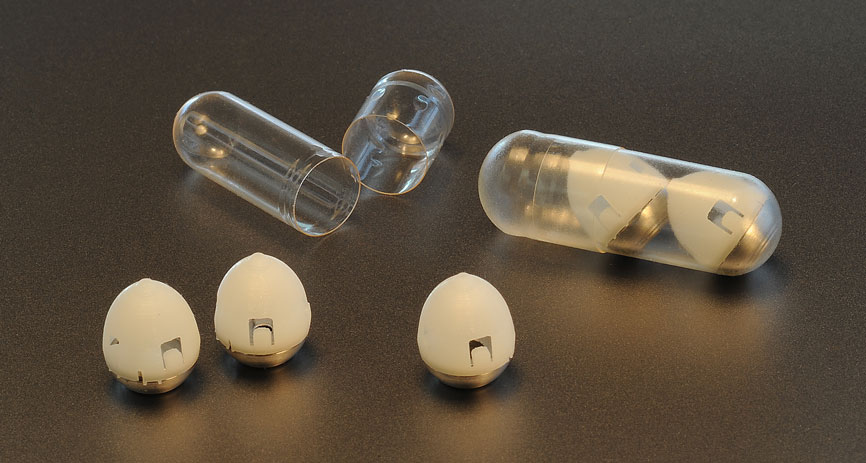Pills equipped with tiny needles can inject a body from the inside
The ingestible devices administer medicine and then pass out through the digestive tract

INGESTION OVER INJECTION Swallowable medical devices, each about the size of a pea, could give painless injections inside the stomach.
Felice Frankel







